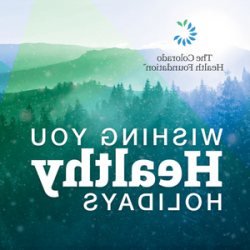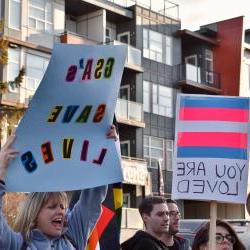
转变我们的评估实践:例子和案例研究
我们的学习 & 评价 team continues to wrestle with practicing evaluation in more equitable ways. 自2018年以来,我们深入参与了这一旅程 公平评价倡议当我们努力创建与公平一致的评估实践时,我们在两者之间切换 专注于存在、思考和行动. This means regularly reflecting on who we are in relationship with our work (and the implications of that for ourselves and others), 我们对做严格有效的评估工作意味着什么的信念, and the specific actions we should take to create evaluations that are better aligned with principles of equity.
在一个 以前的博客文章, we shared ways in which we’ve been honing our skills around noticing and questioning the choices we make about evaluation:
- 评价的重点是什么
- 谁来决定结果和成功是什么样子
- Whose values are being prioritized in the way we design and carry out the evaluation
- 我们如何与社区中的人分享评估的权力
As a continuation of that story, we wanted to share some specific ways in which we’ve been evolving.
我们在基金会的实践
There are many ways – big and small – that we’ve shifted our evaluation practices at the Foundation over the last few years. What we highlight below are changes that have helped us make important steps towards infusing principles of equity into both evaluation processes and outcomes.
- 参与性和协作性要素. We’ve intentionally sought out opportunities within our evaluations for stakeholders (e.g.(受资助人、社区成员、当地非营利组织)参与评估. 这可能包括参与问题的设计或数据收集, engaging in the interpretation of findings or providing insights into how they think about defining success. 参与式方法使我们能够听到新的观点, adjust our own thinking and understand more deeply the different ways that people understand and experience what’s happening in their communities. It provides an opportunity for us to share power over evaluation by elevating the perspectives of other stakeholders to inform our thinking and action.
- 以生活体验为中心. 在过去的几年里, we began to center the voices of those with lived experience in our evaluation studies – that is, we want to hear directly from those who are or have been impacted by that issue or that solution. We intentionally seek out those with lived experience as experts in both issues and potential solutions – whether we’re assessing community needs or evaluating work the Foundation is already funding. Incorporating the perspectives of those with lived experience increases rigor in our evaluation practice, as it allows us to more clearly understand and center expertise from those who are closest to – and therefore best understand – problems and solutions. We engage those with lived experience in ways that help us interrogate our own thinking about what is causing the problem, 什么解决方案可能有效,或者他们如何体验现有的解决方案, 以及我们对成功的判断.
- 基础是系统的一部分. 从他的作品中得到了启示 约翰•鲍威尔, we have been experimenting with how our evaluation studies can both help us assess the work the Foundation engages in with communities, 同时也照亮了这项工作所在的更广泛的系统. 知道制度会使不平等永久化, this approach to evaluation helps us better see the conditions which are creating and perpetuating those inequities. This enables us to more accurately assess the ways in which the Foundation’s work is creating momentum, 工作是如何以及在哪里失败的, and even how we might be unintentionally perpetuating inequities within the very systems we are seeking to change. This type of evaluation evidence helps us make smarter decisions about how to engage in the work, 如何克服障碍,实现更公平的结果. It also helps us test assumptions about the nature of the problems we are working on, 变化是如何发生的,我们工作的预期影响是什么.
我们与评估伙伴的共同实践
我们的学习 & 评价 team regularly contracts with external evaluation partners to conduct evaluations about the work of the Foundation. 我们一起在评估的设计、实施和使用方面进行合作. 我们寻求与我们的评估伙伴建立合作关系. In recent years we have tried to be intentional about creating conditions where we are in true relationship with one another, 这样我们的合作伙伴就能诚实地反思我们取得成功的方式, and how we are falling short of our own aspirations (both as a Foundation and as a 学习 & 评估团队).
We asked some of our partners if they’d be willing to create short case studies of their thinking and practice, 所以他们可以分享他们思考和实践公平的方式. 当您阅读下面的三个案例研究时,您将看到一些共同的主题.
我们的评估伙伴考虑了很多:
- The importance of trust and relationships – whether that’s between their evaluation team and the Foundation team, 或者他们与受助者和社区成员的关系
- 对如何在评价设计中嵌入公平进行有意识的思考, while recognizing there is no single right decision and they need to consider context and practical constraints (such as time, 资金及受助人的负担)
- 如何在整个评估过程中采用协作和参与的方式, 所以他们可以利用声音, 观点和社区专业知识
- Using what’s being learned through the evaluation to help the Foundation change its thinking and how it does the work in alignment with equity and in service of impact
随着我们评估工作的不断扩大和深化, 我们期待着分享更多十大菠菜靠谱老平台我们如何发展我们的实践, and what we’re learning from our partners and others to better align with principles of equity.










